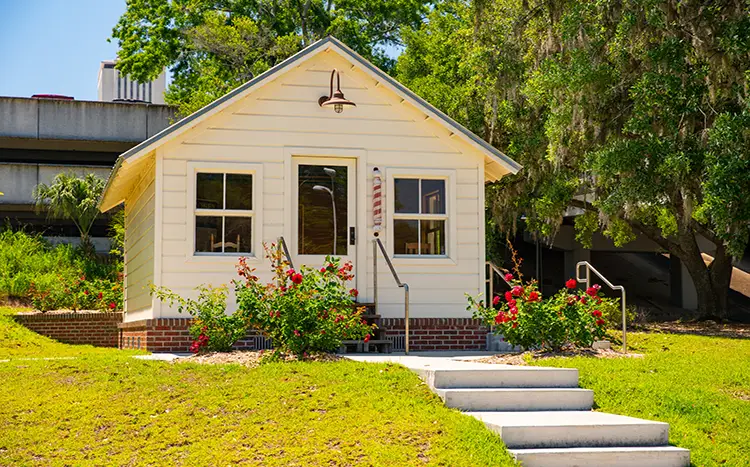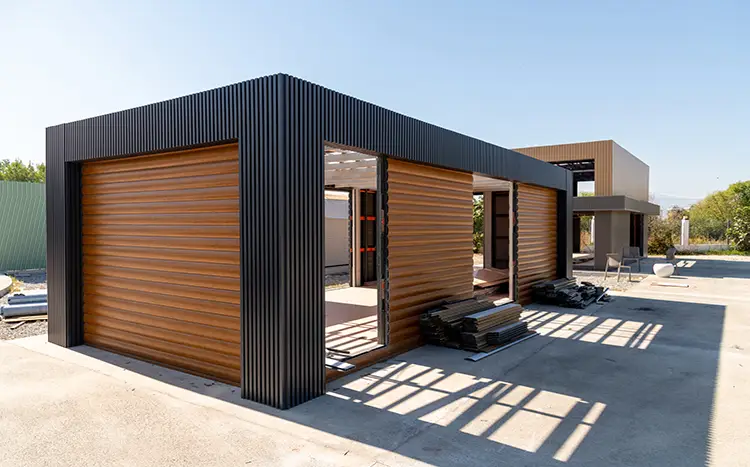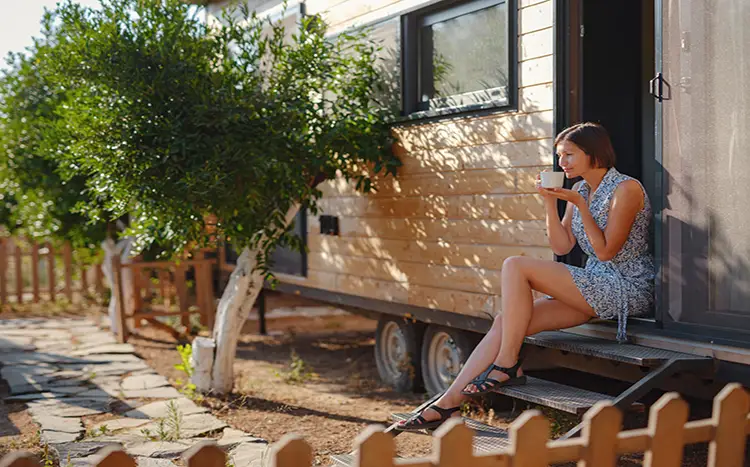Is a Tiny Home Right For You?
Published on December 11, 2023 | 5 Minute read

Melanie
Ortiz Reyes
Content Specialist
In recent years, the tiny home movement has gained remarkable popularity as an alternative living option. A tiny home is typically defined as a compact and efficient dwelling that is significantly smaller than the average-sized house. While there isn't a universally agreed-upon size threshold, tiny homes are generally characterized by their limited square footage, often ranging from as little as 100 square feet to around 400 square feet. With increasing interest in minimalism, sustainability, and the desire for financial freedom, many individuals are contemplating the idea of downsizing to a tiny home.

The Rise of Tiny Homes
Tiny homes have become a cultural phenomenon. The appeal lies in their simplicity, efficiency, and the promise of a more sustainable lifestyle. Many people are drawn to the idea of decluttering their lives, reducing their environmental impact, and achieving financial freedom.
One of the driving factors behind the popularity of tiny homes is the desire for a minimalist lifestyle. In a world where excess is often the norm, the idea of living with only what you truly need is compelling. Tiny homes encourage individuals to prioritize experiences over possessions, fostering a shift in mindset towards a more intentional and meaningful way of living.
Additionally, the cost of traditional housing has soared in many regions, making homeownership an elusive dream for some. Tiny homes offer an affordable alternative, allowing individuals to own a home without the burden of a massive mortgage. The financial freedom associated with tiny living is a significant draw for those looking to break free from the shackles of debt and excessive consumption.

The Role of Real Estate Agents in Tiny Home Transactions
As the interest in tiny homes continues to grow, real estate agents and realtors find themselves adapting to this changing landscape. Traditionally focused on larger transactions involving single-family homes, these professionals are now expanding their expertise to cater to the unique needs of tiny home buyers and sellers.
Real estate agents specializing in tiny homes play a crucial role in connecting buyers with suitable properties. They understand the specific challenges and considerations associated with tiny living, such as zoning regulations, financing options, and finding suitable land for placement. Their expertise helps streamline the buying process for individuals seeking to join the tiny home movement.
Realtors are also instrumental in marketing tiny homes effectively. The appeal of tiny living often requires a different approach compared to traditional real estate marketing. Highlighting the efficient use of space, eco-friendly features, and the overall lifestyle benefits becomes paramount in attracting potential buyers.

Tiny Homes vs. Single-Family Homes
While the allure of tiny living is undeniable, it's essential to weigh the costs associated with this lifestyle against the more conventional option of a single-family home. Let's break down the key financial considerations:
- Initial Cost - Tiny homes generally come with a lower upfront cost compared to single-family homes. The compact size, minimalistic design, and often modular construction contribute to a more affordable price tag. However, it's crucial to factor in the cost of land, as finding suitable and legally compliant spaces for tiny homes can be a challenge.
- Maintenance and Utilities - One of the advantages of tiny homes is their reduced maintenance and utility costs. With less square footage to maintain and heat or cool, homeowners can enjoy substantial savings in ongoing expenses. Additionally, the smaller space encourages a simplified lifestyle, reducing the need for excess belongings and associated costs.
- Resale Value - Reselling a tiny home may pose challenges compared to a traditional house. The niche market for tiny homes means that finding the right buyer could take more time. In contrast, single-family homes tend to have a broader pool of potential buyers, contributing to a potentially quicker resale process.
- Space and Lifestyle Considerations - Choosing between a tiny home and a single-family home ultimately boils down to personal preferences and lifestyle priorities. Those who value open spaces, a yard for recreational activities, and ample storage might find a single-family home more suitable. On the other hand, individuals seeking simplicity, lower maintenance, and a focus on outdoor living might lean towards a tiny home.

Is a Tiny Home Right For You?
Deciding whether a tiny home is the right choice for you involves careful consideration of various factors. Here are some key aspects to contemplate:
- Lifestyle Preferences - Assess your lifestyle preferences and priorities. If you value a minimalist lifestyle, are comfortable with a smaller living space, and enjoy the idea of living with only essentials, a tiny home might be a good fit.
- Financial Goals - Consider your financial goals and constraints. If the idea of reducing or eliminating mortgage debt is appealing, the lower initial cost and ongoing expenses associated with tiny homes could align with your financial objectives.
- Zoning and Legal Considerations - Research local zoning regulations and legal requirements for tiny homes in your desired location. Zoning laws can significantly impact your ability to place a tiny home on a piece of land, so it's essential to be well-informed.
- Future Plans - Consider your future plans and whether a tiny home aligns with them. If you anticipate a growing family or have specific lifestyle changes on the horizon, a single-family home with more space may be a more practical choice.
The decision to embrace tiny home living is a personal one that involves careful consideration of lifestyle preferences, financial goals, and practical considerations. The growing popularity of tiny homes reflects a broader cultural shift towards intentional living, sustainability, and financial mindfulness. With the guidance of real estate agents experienced in tiny home transactions, individuals can navigate the unique challenges and opportunities associated with this alternative housing option. Whether you choose a tiny home or a single-family home, the key is to find a living arrangement that aligns with your values and enhances your overall well-being.